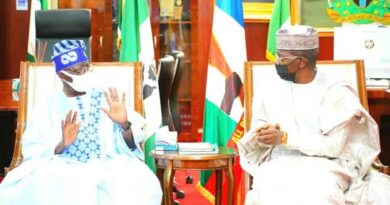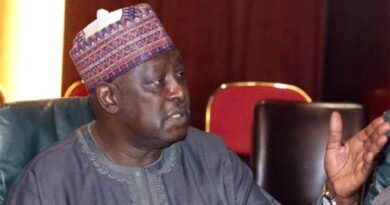FG Announces lunch of National Humanitarian Development Peace Framework
The Federal Government has said it will soon lunch a National Humanitarian Development Peace Framework.
The Minister of Humanitarian Affairs, Disaster Management and Social Development, Sadiya Farouq, stated this on Monday, at a virtual briefing to the United Nations Member States on the Humanitarian Situation in Nigeria.
The framework is aimed at making humanitarian interventions in Nigeria timely, effective, and coordinated between the government, as well as humanitarian and security agencies.
Farouq noted that the National Humanitarian Coordination Technical Working Group, as directed by the National Humanitarian Coordination Committee (NHCC), came up with the initiative aimed at restoring peace and stability in Nigeria.
“The framework is a national and innovative home-grown approach to proactively address critical humanitarian and development challenges at the community, state, and federal levels,” the minister said.
She stated further that the framework was developed with the support of the United Nations Office of the Coordination of Humanitarian Affairs, UN OCHA adding that other critical international and national humanitarian stakeholders would address root causes of conflict, by coherently tackling socio-economic vulnerabilities, to ensure sustainable peace, stability, and development in the country when it is launched.
She added, “We will expect that all critical humanitarian, peace, and resilience programmes and plans key into or are derived from the National Humanitarian Development Peace Framework and Strategy”.
The minister, however, lamented that non-state armed groups in the North East, have impacted the humanitarian landscape in Nigeria by environmental factors, the farmer-herder conflict, banditry, as well as the recent COVID-19 pandemic that has led to displacement, loss of livelihoods, and food insecurity.
Farouq however said the Federal Government is committed to keeping working with the international humanitarian community to ensure safe and efficient access to humanitarian workers, as reached by the National Humanitarian Coordination Committee chaired by Vice President Yemi Osinbajo.
The minister also promised that every region in the country will be re-integrated by developing programmes and interventions to positively engage women and youths who were likely targets for radicalisation or criminal recruitment.
“There is need for urgent and concerted efforts from the government and the humanitarian community to deliver life-saving humanitarian assistance to the vulnerable, with nobody left behind,” Farouq said.




